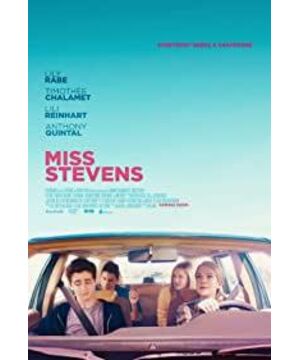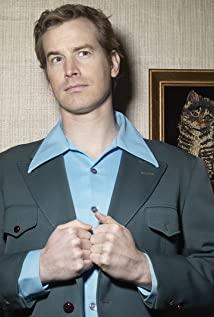What does this movie say? Speaking of two lonely people. Miss Stevens has been dependent on her mother since she was a child. The sudden death of her mother completely lost her ability to withstand the world. As a teacher, she strives to maintain an "adult" image in front of the students.
Every time Miss Stevens was alone in the room, she was full of loneliness, and this loneliness also carried a kind of slowness. She could not face what she called "immaturity", and even more could not face the "sweet tea" calmly. near.
Drama makes "sweet tea" sparkle
The most talked-about clip in "Miss Stevens" should be the drama monologue of Tian Cha. Before Tian Cha started this wonderful monologue, the director used a minute-long empty shot to pave the way. Like this transition method. This shot itself requires full emotion and level processing, and Tiancha needs a shot to complete the shooting continuously every time. It is said that a total of 20 shots were taken.
Billy used this monologue to show his suppressed emotions by his parents, school, and Miss Stevens gradually and completely with the push and pull of the camera. Both the shooting and the performance of Sweet Tea are very enjoyable.
Drama and movie performances are not the same. When asked, do you like drama or movie acting?
Sweet tea said, I like both, and I like it the same.
Our "profession"
The director said that she wanted to break people's imagination of "teacher" and break the Hollywood-style career narrative. Like her students, Miss Stevens will face the impacts of life and the problem of "growth". On the highway, the fragments of the conflict between the three students and Miss Stevens are reminiscent of "Little Beauty in the Sunshine", with the same repression and the same irreconcilable contradiction. The structure and background of the whole story are also somewhat similar to "Little Beauty in the Sun".
Who are we trapped by?
Although "Miss Stevens" is not a typical feminist film, upon closer inspection, you can still find that the director ambushes his criticism of patriarchy in many places in the film.
School is one of the tools of patriarchy. Miss Stevens directly stated at the beginning of the film that "school" is a kind of "system" that binds each of us. This is probably why the director chose to move the main body of the story outside of the school. On the highway, in the hotel, and outside the school, both teachers and students return to their original state.
The world does not belong to only one category of people. Miss Stevens played the actor in a drama when she was a student. In the last scene of the performance, the heroine turned the hug in the script into a kiss when she was deeply in love. As a result, the two female students were severely punished by the school. . Miss Stevens, who is still young and has no partner in her middle age, is considered gay. Sam, played by Anthony Quintal, is gay.
When the film discusses the kissing incident, Billy is asked to help the audience keep asking whether Miss Stevens is gay or not, and how she thinks about the kiss. The director also used Miss Stevens to express that gender itself is fluid.
The story of "Miss Stevens" did not go to the set ending as we imagined or pre-determined, nor is it a simple story about "teacher-student love". The director already has his own style in the use of shots and the narration of the story, and the next film should be better than this one.
The original text was published in the public account: Yuki Chiho
View more about Miss Stevens reviews











